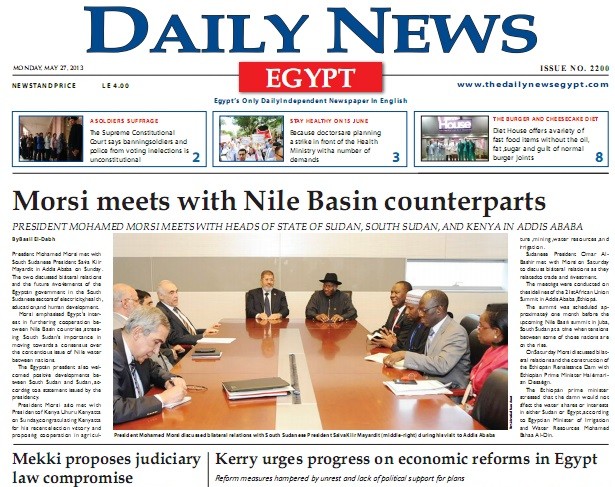There are many differences between the fire that destroyed the Egyptian Shoura Council (Upper House of Parliament) building and the famous Cairo Fire on January 26, 1952. Besides the fact that the latter was not set by someone unlike the former, the period between the two events separates them in terms of the circumstances and the context.
The comparison between the two, however, remains essential, because they signify the deterioration of the overall performance and the inability to repair imbalances that weaken this performance and cause fires, not only in some buildings, but also in society as a whole, thus giving top priority to addressing their sociopolitical causes.
In the current situation, as it was in January 1952, there is a growing sense of dissatisfaction among large sectors of the society, creating tension that is difficult to conceal.
Therefore, if some Egyptians see the older fire as the natural outcome of an inflexible and socially alienated regime, others consider the recent fire as evidence of the poor performance of the political regime and its inability to carry out its mission.
In both cases, significant classes in society saw what happened as symbolic of an authority that has detached itself from ordinary people.
The two houses of parliament are indeed symbolic of the ruling authorities, regardless of the fact that they are legislative and control authorities which are supposed to represent the people.
The significance here is that the social groups who have lost confidence in parliament a long time ago and have abstained from participating in legislative elections now consider parliament not only a false expression of their will, but also an extension of the government’s authority, which uses it to pass legislation that causes the deteriorating in living standards of the lowest classes and a large sector of the middle classes.
The widespread comments on blogs, Facebook, telephone text messages and others, reading “Let it burn from injustice, “Injustice will end, “Your Lord is the Avenger, the Powerful, “It is their deeds that backfired on them and other countless examples accompanied with footages of the fire by way of gloating, are a dangerous indication that perhaps raises a new and strong alarm.
The significance of this societal reaction does not differ, in essence and regardless of size, from the January 1952 fire, in spite of the big difference between the context and details of each.
Large sectors of society considered the January 1952 Cairo Fire as the burning of authoritarian symbols despite the fact that only private property was set aflame.
Nevertheless, the intensity of the social resentment at the time pushed disadvantaged sectors and angered groups to make a link between private property and a regime that was perceived as an agent of the owners of these properties and other private interests rather than public ones.
We can find here a common denominator among broad sectors of society in terms of how they saw the regime in January 1952 and August 2008.
If the 1952 Fire was evidence of a sharp crisis within the regime at the time, the 2008 blaze highlighted the depth of the current regime crisis in Egypt.
If the downtown Cairo blaze in 1952 was an act of sabotage and evidence of the failure of the regime to protect the country, then the 12-hour fire in the Shoura Council provided fresh evidence of the declining performance of state agencies and public facilities, hence the inability of the regime to assume its main responsibilities in managing public affairs.
The failure to put out the fire spreading everywhere was a new test to one of the major public utilities, revealing a malfunction that has been commonplace in several similar facilities in recent years, such as public transportation, railways, criminal security, traffic, local administration and others.
Therefore, the difference between the circumstances, context and time of the two fires does not underestimate the importance of this similarity in meaning and consequence, once the ruling regime understands it.
Dr Waheed Abdel Meguidis an expert at Al Ahram Center for Political and Strategic Studies.


